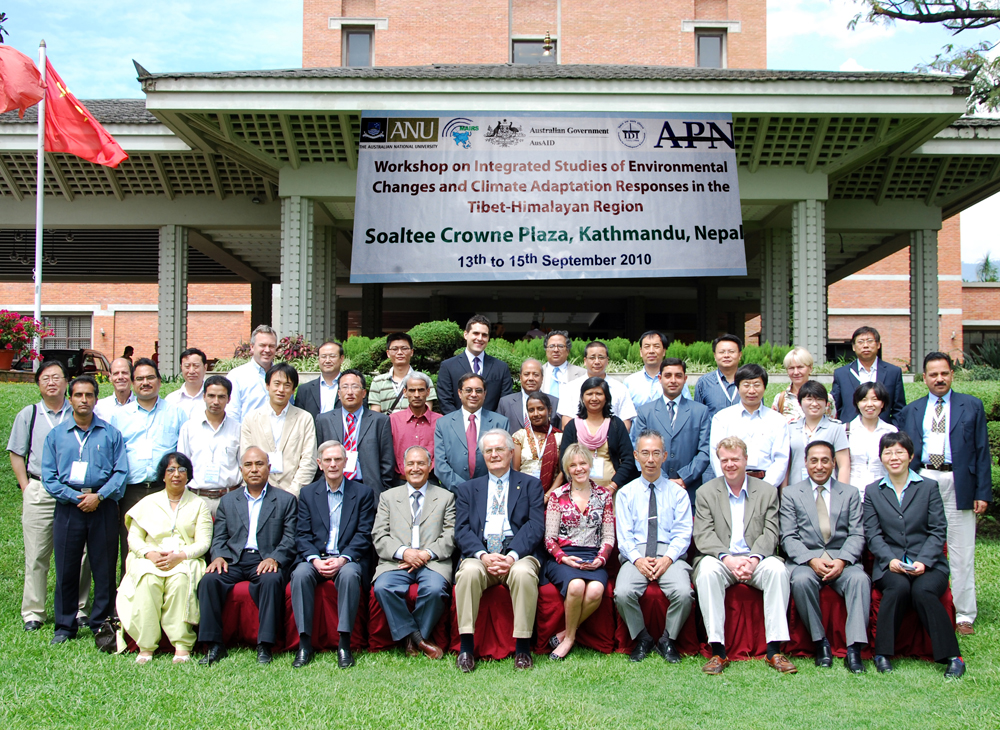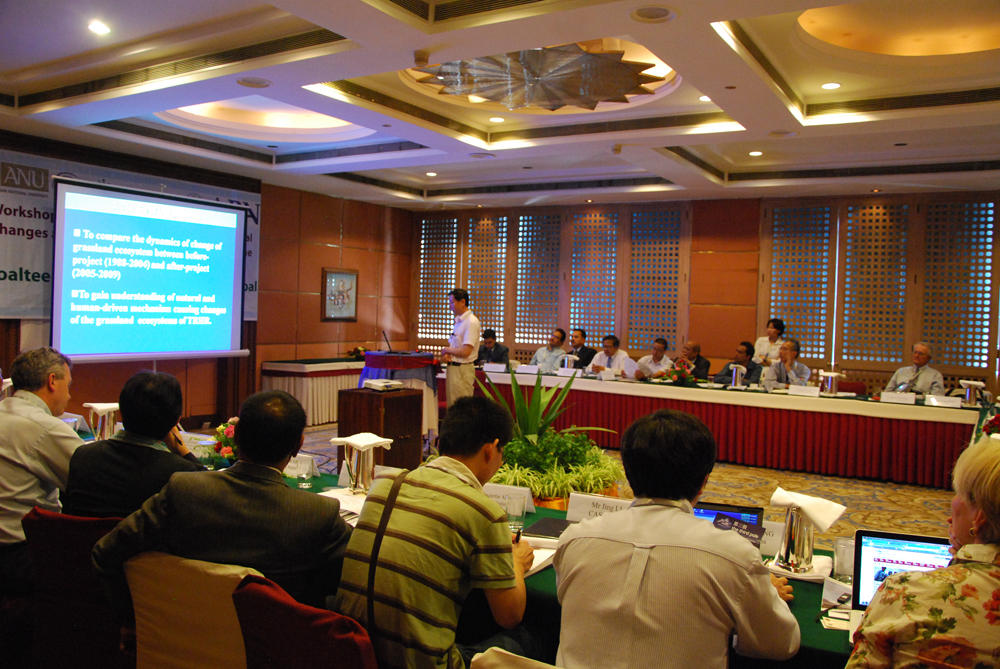Workshop on Integrated Studies of Environmental Changes and Climate Adaptation Responses
With generous support from the Australian Agency for International Development (AusAID) International Seminar Support Scheme, the Monsoon Asia Integrated Regional Study (MAIRS) and the Australian National University, a three-day Symposium (13-15th September 2010) consisting of delegates from over 20 organizations from the region was held in Kathmandu, Nepal. The primary aim of the workshop was to bring together regional knowledge and research findings under the auspices of a truly multinational, interdisciplinary research framework programme for the Himalaya-Tibetan Plateau (HTP) region. Specific workshop objectives included:
1. Assess and document the current research status and projects from each country/region.
2. Identify knowledge gaps.
3. Establish a set of research priorities for the region.
4. Determine an effective mechanism to enhance knowledge sharing in the region
During the three day workshop, delegates provided an overview of their research. Scientific data collected from across the region over a long time period has shown (unequivocally) that temperatures are warming in the Himalayas, with acceleration in recent years. Along with warming, changes in precipitation across the region have also been observed with a notable difference in rainfall between arid and non-arid regions. Changes in the Asia Monsoon System have also been observed, but the reasons for these observed changes are not clear. Without doubt, water security (supply, storage and access) was identified as a major issue facing the region.
In terms of land use change, land use activities such as rapid urbanization, increased resource utilization, large-scale infrastructure development, the overgrazing of livestock, as well as climate change have led to rapid change on a large scale. Research has shown that higher temperatures are contributing to permafrost melt and landslides as well as the rapid retreat of small glaciers at lower elevations. With further increases in global emissions, temperatures will continue to rise in the future leading to further social disruption for many vulnerable communities. Forced migration and increased population growth and urbanization will ensue and the region’s unique biodiversity will face an ever greater threat of extinction from climate change and anthropogenic influences.
Delegates identified areas where further research is urgently required and ways knowledge sharing and collaboration could be further strengthened and enhanced for the benefit of all. In summary the workshop proceedings identified the following needs:
Environmental monitoring in the region must be scaled-up and refined to improve or enhance predictive capabilities and decision making processes.
There is a need to improve adaptive response strategies through better integration of knowledge and experiences amongst stakeholders. However, lack of monitoring, data availability and accessibility remains a major problem for researchers working in the region. It was agreed that a knowledge management system for researchers be developed with the capacity to provide, in the first instance, basic metadata on research activities and data/results (who is doing what and why) in the region.
The quantification of social hardship originating from extreme events such as landslides, floods, long-term drought and desertification is lacking. Natural risk assessments and early warning systems should be adopted where possible.
There is a strong demand in the region for hydrological models that adequately incorporate social- economic parameters (integrative models).
It was agreed that a steering committee be established to encourage cross-cutting collaborative research opportunities.


